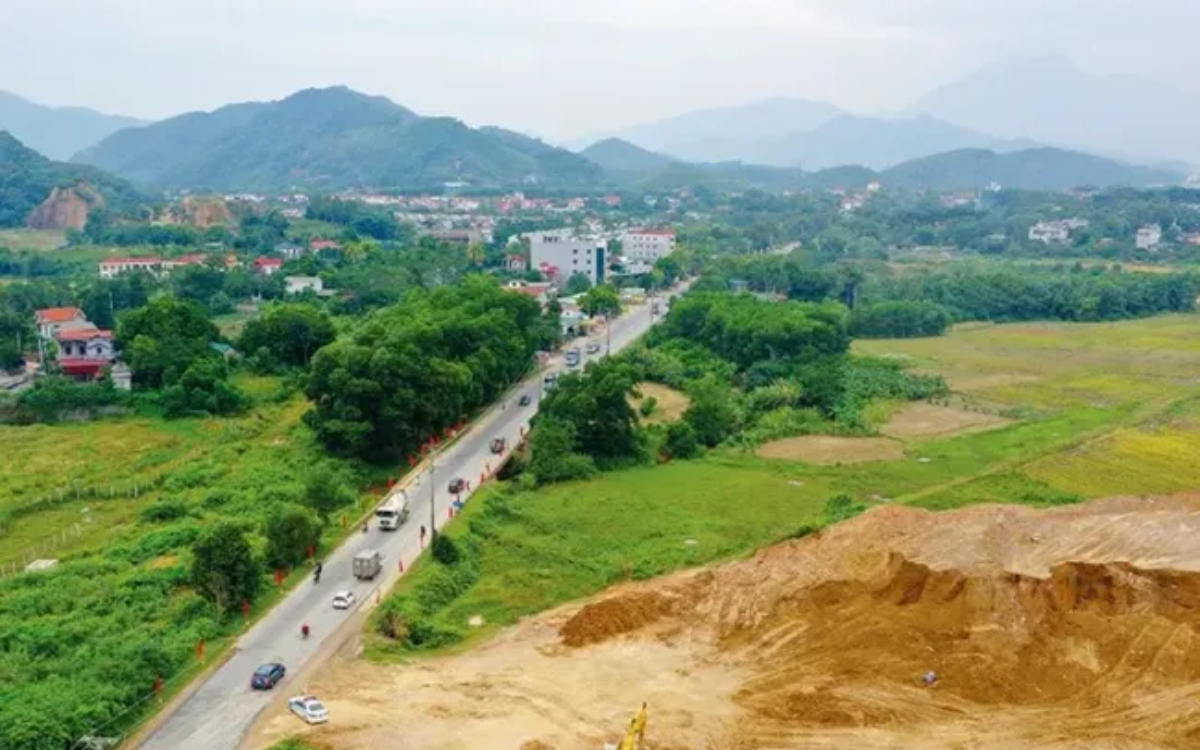



Leaders of the provincial People’s Committee, Department of Transport, and the People’s Committee of Da Bac district inspect site clearance activities for the Hoa Binh-Moc Chau expressway in Cao Son commune.
The Hoa Binh-Moc Chau expressway has an important significance in socio-economic development of Hoa Binh in particular and Northwestern provinces in general. The project helps complete the CT.03 expressway system connecting Hoa Binh, Son La and Dien Bien province, forming inter-regional traffic routes of Son La, the northwestern provinces - Hanoi, Hoa Binh, Phu Tho, the northern mountainous provinces, thereby enhancing the operation capacity of the entire inter-regional traffic network.
For Hoa Binh, the project is expected to contribute to attracting investors to localities along the expressway. A highlight on the route is Hoa Son bridge connecting two banks of Hoa Binh Lake, a national tourism site and the key tourist destination of the northern mountainous area, which owns unique cultural values of ethnic minority groups and diverse tourism products linked with the Hoa Binh Lake ecosystem. This is also the major tourist destination of Hoa Binh.
Aware of the significance of the project, the provincial Party Committee and People’s Committee have given drastic directions over ground clearance activities and the preparations of conditions for the launching of the project. Currently, more than 20% of land area to be reclaimed have been cleared, enabling the project to be launched in September.
The Hoa Binh-Moc Chau expressway has a total length of 34km, linking Da Bac township in Da Bac district with Chieng Yen commune, Van Ho district of Son La province. In the first phase, the road will have two lanes and a 12-m surface.
Construction of the project will be launched at Seo village of Cao Son commune in Da Bac district.
According to Vice Chairman of the district People’s Committee Nguyen Thanh Tuan, to date, the district has finalised a compensation plan and reviewed the resettlement for affected households, while encouraging locals to relocate graves to hand over the site for the investor.
As part of efforts to speed up the work, the district has set up a working group in charge of supporting compensation and resettlement activities, which is led by a vice chairperson of the district People’s Committee. Leaders of the district Party Committee and People’s Committee hold weekly meetings with this working group to evaluate the progress of the work and seek measures to deal with arising problems.
As scheduled, Hoa Binh needs to reclaim more than 354 hectares of land for the project, which are mainly forest land and rice farming land that are subjected to be converted for other purposes. This is an important factor in site clearance work, said Tuan.
Meanwhile, Bui Ngoc Tam, Director of the provincial Management Board for Transport Projects said that the provincial People’s Committee approved the policy for land purpose switching for the project in its August meeting, which enables the speeding up of site clearance activities. The board is finalising conditions to ensure that the project can be launched in September, Tam said.